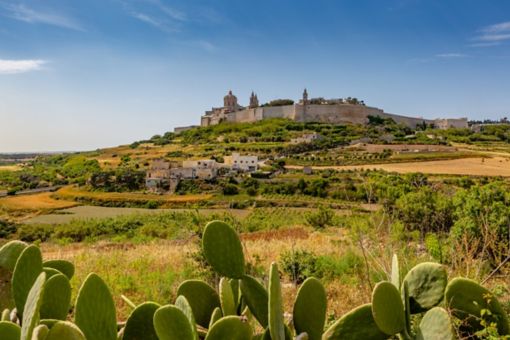
“Welcome to the KPMG in Malta Budget Highlights for 2026.
The Minister noted the sustained growth of the Maltese economy, though noted Malta’s declining birth rate. He therefore announced a number of support measures targeted to support young families, including the introduction of new personal tax bands based on the number of children, a first in Maltese tax history.”
Anthony Pace
Partner, Head of Tax
KPMG in Malta
Main Budget Highlights
COLA increase of €4.66 per week.
Revised parent rates based on the number of children.
New married rates for couples with children.
Pensions to increase by €10 per week.
Eco-contribution to increase from €0.50 to €1.50 per night.
Increase in maximum Micro Invest credits to €65k (Malta) and €85k (Gozo).
A 60% tax credit on qualifying capital expenditure for businesses.
Tax deduction of 175% of Qualifying R&D.
€100m budget for digitalisation schemes.
3.5% duty on the first €400k of inherited property (formerly €200k).
First-time buyer scheme made permanent.
Accelerated tax depreciation over 2 years on qualifying digital investments.
Duty on transfer of family businesses remains at 1.5%.
Indirect tax measures for the gaming sector.
Assistance of up to €300k for self-employed and small businesses to acquire industrial garages.
Economic highlights
Malta’s economy continued to grow steadily in 2025. During the first half of the year, GDP increased by 3.1%, outpacing other European countries. This growth was mainly driven by strong domestic demand and the export of services. Nominal GDP growth is expected to reach 4.1%, with a similar increase projected for 2026.
Inflation is forecast to remain stable at around 2.2%. The Cost of Living Allowance (COLA) will be €4.66 per week. Public debt is expected to stand at 47.1% of GDP by the end of the year, with a further reduction anticipated in 2026. This remains below the 60% threshold set by EU fiscal rules.
The budget deficit is now projected at 3.3% of GDP, an improvement over the initial forecast of 3.5%. Next year, the deficit is expected to fall further to 2.8%, dropping below the 3.0% limit required by the EU’s fiscal rules.
Personal taxation
- Over the next three years, families with children under 18 years of age, or under 23 if in full-time education, will benefit from a reduction in tax through the introduction of new ‘parent’ and ‘married’ tax bands. Two new tax bands will be introduced for each of these categories for families with one child and those with two or more children respectively. The current ‘married’ rates, will continue to apply for qualifying individuals who do not qualify for the new bands, such as households where only one spouse is employed. The new applicable rates and the maximum tax savings are set out in the tables below.
2026 |
|||
Income bracket |
Tax rate |
Subtract |
Maximum Tax Saving (per annum) |
'Married' computation with one child |
|||
€ 0 - € 17,500 |
0% |
€ 0 |
€ 375 |
€ 17,501 - € 26,500 |
15% |
€ 2,625 |
€ 725 |
€ 26,501 - € 60,000 |
25% |
€ 5,275 |
€ 725 |
€ 60,001 and over |
35% |
€ 11,275 |
€ 725 |
'Married' computation with two children or more |
|||
€ 0 - € 22,500 |
0% |
€ 0 |
€ 1,125 |
€ 22,501 - € 32,000 |
15% |
€ 3,375 |
€ 2,025 |
€ 32,001 - € 60,000 |
25% |
€ 6,575 |
€ 2,025 |
€60,001 and over |
35% |
€ 12,575 |
€ 2,025 |
'Parent' computation with one child |
|||
€ 0 - €- 14,500 |
0% |
€ 0 |
€ 225 |
€ 14,501- € 21,000 |
15% |
€ 2,175 |
€ 575 |
€ 21,001 - € 60,000 |
25% |
€ 4,275 |
€ 575 |
€ 60,001 and over |
35% |
€ 10,270 |
€ 570 |
'Parent' computation with two children or more |
|||
€ 0 - €- 18,500 |
0% |
€ 0 |
€ 925 |
€ 18,501- € 25,500 |
15% |
€ 2,775 |
€ 1,625 |
€ 25,501 - € 60,000 |
25% |
€ 5,325 |
€ 1,625 |
€ 60,001 and over |
35% |
€ 11,325 |
€ 1,625 |
2027 |
|||
Income bracket |
Tax rate |
Subtract |
Maximum Tax Saving |
'Married' computation with one child |
|||
€ 0 - € 20,000 |
0% |
€ 0 |
€ 750 |
€ 20,001 - € 30,000 |
15% |
€ 3,000 |
€ 1,450 |
€ 30,001 - € 60,000 |
25% |
€ 6,000 |
€ 1,450 |
€ 60,001 and over |
35% |
€ 12,000 |
€ 1,450 |
'Married' computation with two children or more |
|||
€ 0 - € 30,000 |
0% |
€ 0 |
€ 2,950 |
€ 30,001 - € 41,000 |
15% |
€ 4,500 |
€ 4,050 |
€ 41,001 - € 60,000 |
25% |
€ 8,600 |
€ 4,050 |
€60,001 and over |
35% |
€ 14,600 |
€ 4,050 |
'Parent' computation with one child |
|||
€ 0 - €- 16,000 |
0% |
€ 0 |
€ 450 |
€ 16,001- € 24,500 |
15% |
€ 2,400 |
€ 1,150 |
€ 24,501 - € 60,000 |
25% |
€ 4,850 |
€ 1,150 |
€ 60,001 and over |
35% |
€ 10,850 |
€ 1,150 |
'Parent' computation with two children or more |
|||
€ 0 - €24,000 |
0% |
€ 0 |
€ 2,300 |
€ 24,001 - € 33,500 |
15% |
€ 3,600 |
€ 3,250 |
€33,501 - € 60,000 |
25% |
€ 6,950 |
€ 3,250 |
€ 60,001 and over |
35% |
€ 12,950 |
€ 3,250 |
2028 |
|||
Income bracket |
Tax rate |
Subtract |
Maximum Tax Saving |
'Married' computation with one child |
|||
€ 0 - € 22,500 |
0% |
€ 0 |
€ 1,125 |
€ 22,501 - € 33,500 |
15% |
€ 3,375 |
€ 2,175 |
€ 33,501 - € 60,000 |
25% |
€ 6,725 |
€ 2,175 |
€ 60,001 and over |
35% |
€ 12,725 |
€ 2,175 |
'Married' computation with two children or more |
|||
€ 0 - € 37,000 |
0% |
0 |
€ 4,700 |
€ 37,001 - € 50,000 |
15% |
€ 5,550 |
€ 6,000 |
€ 50,001 - € 60,000 |
25% |
€ 10,550 |
€ 6,000 |
€60,001 and over |
35% |
€ 16,550 |
€ 6,000 |
'Parent' computation with one child |
|||
€ 0 - €- 18,000 |
0% |
€ 0 |
€ 800 |
€ 18,001- € 28,000 |
15% |
€ 2,700 |
€ 1,800 |
€ 28,001 - € 60,000 |
25% |
€ 5,500 |
€ 1,800 |
€ 60,001 and over |
35% |
€ 11,500 |
€ 1,800 |
'Parent' computation with two children or more |
|||
€ 0 - €- 30,000 |
0% |
0 |
€ 3,800 |
€ 30,001- € 42,000 |
15% |
€ 4,500 |
€ 5,000 |
€ 42,001 - € 60,000 |
25% |
€ 8,700 |
€ 5,000 |
€ 60,001 and over |
35% |
€ 14,700 |
€ 5,000 |
Pensions and Allowances
- Increase in pensions of €10 per week, with an additional €3.50 per week in widowers’ pensions.
- Increase of €10 per week in the allowance for widows being parents of children not older than 23 years who are under their custody.
- Increase in the Supplementary Allowance of €27.30 per week for married couples and €14.40 per week for single persons. The income limits for couples and persons to qualify for the Supplementary Allowance also increased to €20,000 and €14,000 respectively.
- The annual supplement to persons who are older than 65 years old increased by €100 to €250. In the case of a married couple where both individuals are more than 65 years old, this supplement will be paid to both individuals rather than to one of them as was the case to date.
- Discrepancies in the cost of living bonus for pensioners to be phased out by 2027.
- Increase of €2 – €14 per week in pensions paid to married individuals who receive pensions with a reduced rate due to their spouse also receiving a pension.
- Increase of €200 in the commuted pensions for individuals receiving service pensions.
- Increase of €50 in the bonus for individuals who are not entitled to receive a pension.
- Increase of €75 in the allowance for the elderly who reside in their residence or with their relatives and those who reside in a care home at their own expense.
- Increase in sickness benefits and allowances for persons with disability and carers.
- The period for which the maximum rate of unemployment benefit is applicable increased from six weeks to ten weeks, while the period in which the lowest rate is applicable decreased from ten weeks to six weeks.
- Increase of €10 per week in the allowance to individuals who are attending a drug rehabilitation programme.
- Individuals who successfully complete a drug rehabilitation programme will qualify for four years of social security credit. In addition, their employer will benefit from a two-year exemption from paying social security.

- Increase in the Carers’ Grant of €179.24 per year, with the total grant amounting to €5,368.89.
- Increase of €250 per year in the refund with respect to therapy for children with disability, with the total refund amounting to €1,000 per year per child. The maximum age of eligible children to increase from 16 to 23.
- Children’s Allowance will increase by €250 for couples earning less than €30,000, and an additional €167 for couples earning less than €23,000 per year.
- Increase in the In-Work Benefit of €75 per child.
- Increase of €500 in the bonus upon the birth of a new child or adoption to a total of €1,000 for the first child, €1,500 for the second child and €2,000 for the third child and onwards.
- Increase in the maximum reimbursement of expenses in relation to the adoption of a child from outside Malta from €10,000 to €12,000. The reimbursement in relation to local adoptions increased from €1,000 to €2,000, out of which €500 is in the form of a grant.
- Increase of €10 per week in the Fostering Allowance.
- The income limit of couples eligible for the Energy Benefit will increase by €2,500.
- The staggered tax exemption introduced in 2022 on pensions to individuals who are at least 61 years old in the year in which the pension is received, shall continue to apply and increase as per the legal notice. For basis 2026, the exempt portion is 100% (80% for 2025), subject to a prescribed cap.
- The payment of additional COLA for low-to-medium income households will continue.
- Pensioners born before 1962 who would have had a 2026 salary exceeding the Maximum Pensionable Income had they continued working, will see an improvement in their pension to remove the discrepancy in calculating their pension entitlement when compared with those born after 1962.
- The scheme allowing applicants with a shortfall in their social security contributions to pay a maximum of 5 years’ contributions will no longer require the applicant to be in employment in cases where the person needs a minimum of 10 years contribution to qualify for a pension.
Family
- Government will start discussions with stakeholders in relation to increases in the maternity leave, paternity leave and improvements in relation to parental leave.
- A Neonatal Care Leave will be introduced for parents whose newborn children require intensive or additional care immediately after birth. The cost of this leave will be borne by the Government.
- Self-employed individuals will be entitled to bereavement leave, miscarriage leave and the 8-week parental leave granted upon the birth, adoption, fostering or legal custody of children.

Property
- The grant for first-time buyers of €1,000 per year for ten years will be extended.
- The Housing Authority programme whereby the authority finances the interest on the 10% deposit for qualifying persons, required for the purchase of a property incurred on a personal loan covering the down payment on the signing of the promise of sale will be extended to cover the purchase of property costing up to €250,000, up from €225,000.
- The minimum age of individuals eligible for the equity sharing scheme will be decreased from 30 to 25. Furthermore, the maximum purchase price of property eligible for this scheme is proposed to increase to €350,000 for purchases by separated persons.
- The exemption from duty on documents and transfers on the first €200,000 of the consideration paid for the acquisition of immovable property by first-time buyers to establish therein, or construct thereon their sole, ordinary residence will be included in the main Act and effectively renewed permanently.
- The eligibility of the first-time buyers exemption will also be extended to individuals who have already acquired non-residential property.
- The reduced rate of duty of 3.5% on the first €200,000 of inherited property will be extended to apply on the first €400,000.
Businesses
- Government to develop measures to contribute to a reliable indirect tax framework for value-adding industries such as gaming.
- Launch of the European Digital Innovation Hub, providing SMEs and start-ups with free access to AI, High-Performance Computer, and cloud computing services.
- The existing schemes supporting family business transfers to be extended, including the reduced duty rate on intra-family transfers of 1.5%, advisory grants on governance and succession-planning, training vouchers and digitalisation assistance for long-term planning.
- Launch of a new scheme for self-employed and small enterprises to purchase industrial garages to operate in, whereby the Government will cover up to 50% of the cost, capped at €300,000.
- Development of a modern SME complex for companies developing health, pharmaceuticals, light industry and/or biotechnology products.
- Tax credits under the Micro Invest Scheme to be increased to €65,000 (Malta), covering up to 65% of eligible costs. The 20% additional support for Gozo-based enterprises shall remain unchanged for certain enterprises, now reaching a maximum of €85,000.
- New Investment Tax Credit offering 60% of qualifying investment value, claimed over four years, for capital expenditure made within the next two years on machinery, IT, tools, and cybersecurity.
- New wage-support mechanism introduced under the Micro Invest Scheme, where the Government will finance 65% of wage increases for two years, up to €780 annually, for employees with more than four years of service.
- Exemption for cooperatives from submitting audited accounts for tax purposes.
Research, Innovation, Artificial Intelligence and Digitalisation
- Introduction of a 175% deduction for eligible research and innovation expenditure.
- Accelerated depreciation over two years on investments in AI, digitalisation, automation, modernisation, and cybersecurity.
- €100 million budget to incentivise the adoption of technologies such as AI, Internet of Things, cybersecurity, AR/VR, blockchain, and robotics.
- Set up of a centre of excellence within MITA to train civil servants in AI.
Tourism
- Eco-contribution increased from €0.50 to €1.50 per night, to fund tourism infrastructure and environmental improvements.
Labour Market
- Plans to launch a Malta National Talent Register to map national skillsets and align training programmes with workforce needs.
- A new scheme to attract youths of Maltese descent, aged between 18 and 30, who currently live outside Malta to work or study in Malta.
Youths and Sports
- Stipends to increase by 15%.
- Free gym memberships scheme covering the first six months to be extended to 16 to 21 years olds.
- Through the LIFEHACK programme, accredited courses on personal finance and digital capabilities will be offered.
- Around 20,000 digital devices will be distributed to students of years 4, 7, 8, and 9.
- New financial assistance of €500 to all families who have students in years 10 and 11 (post-secondary).
- Expansion of the handball pavilion into a multifunctional sports complex.
- Marsa Sports Complex, offering weightlifting, squash courts and netball courts to be opened.
- Investment of €1 million in Special Olympics Malta.


Health
- Extension of Mater Dei’s Neonatal (ICU) and Paediatric Units, an investment in the second Obstetric Theatre and introduction of an advanced cryopreservation facility.
- Haematology day care centre to open in Sir Anthony Mamo Oncology Centre.
- St Luke’s Hospital to be converted into a Health Care Village over a period of time.
- Government is expected to sign a Memorandum of Understanding with the Central Drugs Standard Control Organisation (CDSCO) in India for the development of the pharmaceutical industry.
- Eligibility for the Pink Card (which give holders the right to free prescribed medicines) extended to persons aged 65 years and over.
- As from next year, persons suffering from coeliac will receive €85 per month instead of €65 per month.
- Inauguration of an obesity clinic.
- Three new Regional Mental Health Centres to open in 2026 in Bormla, Central, and Northern Malta.
Infrastructure and Agriculture
- Government will keep subsidising energy and fuel prices.
- The strategic vision for clean energy is being achieved through (i) the implementation of the second interconnector, (ii) investment for mass energy storage using batteries and the implementation of a project for the supply of renewable energy through wind turbine technology.
- Voluntary Schemes will be introduced whereby retired farmers giving up land for younger farmers will be given appropriate compensation.
- Fiscal incentives will be offered to encourage the acquisition and sale of agricultural land.
Transport
- In 2026, all public transport vehicles in Gozo will consist of electric vehicles.
- Individuals under 30 years who renounce their driving license will be given an annual grant of €5,000 for 5 years.
- The existing grant incentivising the acquisition of an electric vehicle and the current vehicle scrappage scheme will be extended.
- The introduction of a grant of €1,500 per year for individuals who acquire a motorcycle and who decide to give up their car license in order to start using a motorcycle instead.
Shipping and Aviation
- Continuation of the works on the Shore-to-Ship Supply 2 project.
- Malta will keep improving its shipping standards, maintaining its position as a leading global and European ship registry, and the top jurisdiction for super yachts.
- In aviation, Malta aims to further expand its aircraft register, which currently includes 930 aircraft.
Gozo
- A task force to be set up to analyse how to improve the efficiency of use of the Gozo’s main port to strengthen Gozo’s economy.
- Plans to start working on a new and sustainable economic niche aimed at attracting specialised tourism.
- An allowance of €280 per month to Gozitan post-secondary and tertiary students.
- Continued investment in Gozo to enhance sports infrastructure, open green space and public parking.
- The infrastructure and services provided by the Gozo General hospital will continue to be strengthened.
- Initiation of the Experimental Farm project with the aim to strengthen Gozo’s agricultural sector by introducing a modern laboratory hub and training centres.

Justice and Defence
- Investments in the Police Corps, Armed Forces and Civil Protection including a €6m investment to change the IT system of the Police Corps, investment to modernise fleet of vehicles and equipment, investment in electronic monitoring.
- Modernisation of the Kordin Correction Facilities.
- Conclusion of first phase of the Family Court Reform and the Media Reform.
- Development of sites to host certain Courts including the Commercial Court.
- Alternative accommodation for victims of domestic violence.
Culture and Creative Sector
- After securing EU Funding, work will commence on the previously announced Culture and Arts Hub which will be located in Marsa.
- Launch of Creative Art Spaces as a pilot project to identify premises to be used by companies that operate in the cultural sector.
- Launch of Malta Biennale for another year next year.
- Work is underway for Malta to join Eurimages of the Council of Europe to increase opportunities for creative artists to co-produce and distribute their projects.
The information contained in this publication is based on the 2026 Budget Speech, during which the Minister for Finance announced, amongst others, measures that may require the passing of legal instruments for them to be effective. The details of the measures would typically be known at point of publication of such instruments or related guidelines. Readers affected by any announced measure should seek professional advice specific to their facts and circumstances and not rely on this publication.






